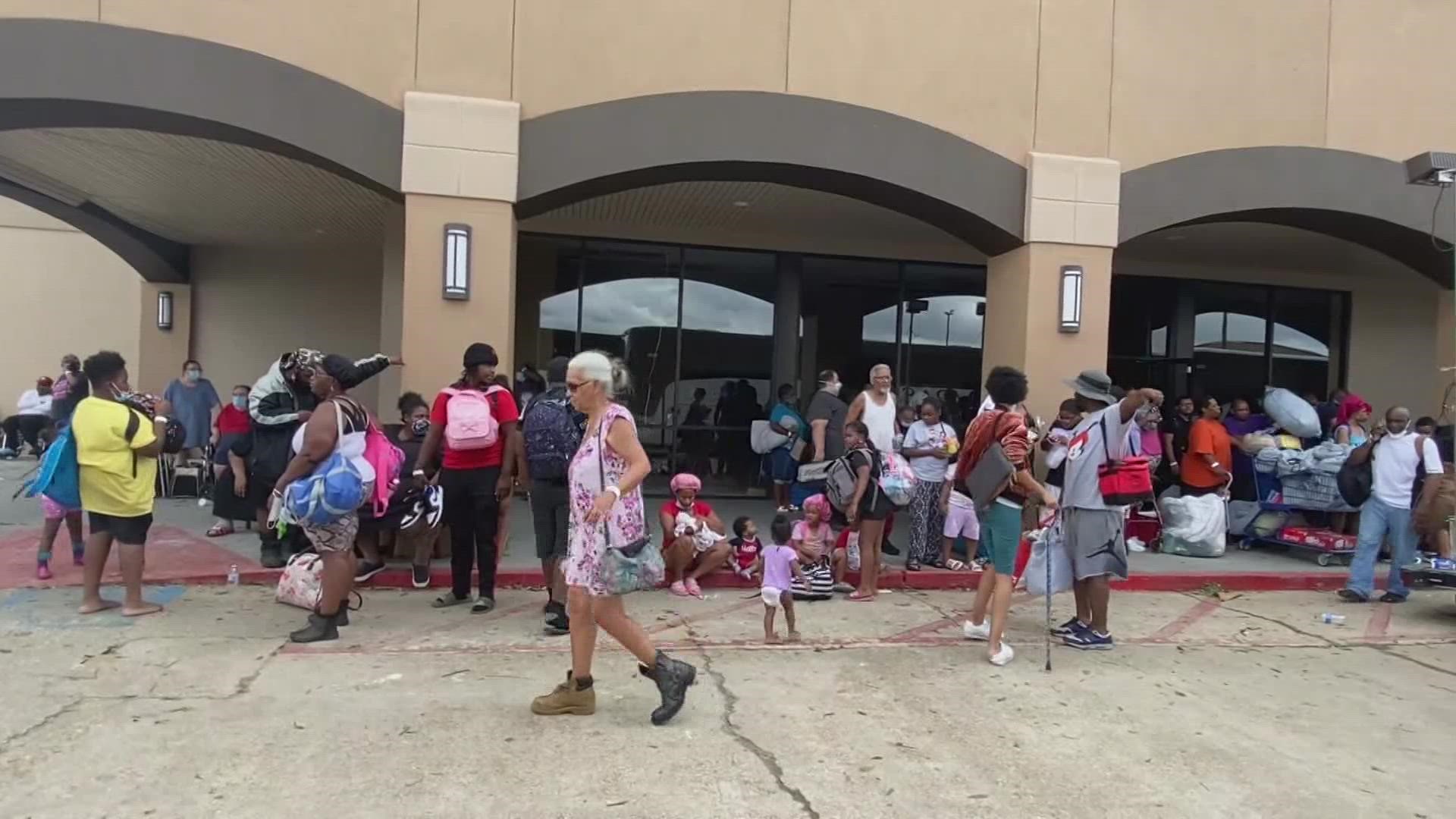NEW ORLEANS — Louisiana, Florida and Texas were among the first states to see a surge in the Delta variant of the coronavirus, and now it's hitting other places hard, like states in the Northwest.
The question doctors have now is, how will Hurricane Ida impact COVID cases in Southeast Louisiana? It may be too soon to tell.
Hurricane Ida sent many of us packing. With so many concerns, you may have let your guard down with mask-wearing and distancing. Entire families stayed with friends out of town, neighbors with generators, or huddled in shelters. And now we're surrounded by the many who have come to the hard-hit areas to help clean up. It’s an ideal “storm” for the spread of the highly contagious Delta variant, but so far, doctors say cases are going down.
“Our inpatient numbers actually have been looking really good across the state, so for us locally, we really hit our peak of COVID inpatients in the hospital around the 20th of August,” explained Dr. Jeffrey Elder, the Medical Director of Emergency Management at LCMC Health, who is also an emergency medicine physician at LSU Health Sciences Center.
The same trend is being seen across the statewide Ochsner Health system.
“If you go back to a month ago, we had 1,009 COVID patients, and today we're at 386. So, certainly that's headed in the right direction,” Ochsner Health President and CEO Warner Thomas said.
But we're not out of the woods yet.
“So, we would hope that within the next two weeks after everybody comes back, we would see whatever the impact would be, but so far so good,” said Dr. Julio Figueroa, Chief of Infectious Diseases at LSU Health Sciences Center.
When asked if it is possible that since Louisiana peaked before the rest of the country, could the state be on a downward slope that will continue, Dr. Elder replied, “Yeah, that's the hope.”
And while Southeast Louisiana was dealing with power outages and blue tarps, preliminary study results from U.S. researchers came out in pre-print. It showed masks can slow coronavirus spread. Done in the real world in Bangladesh, it suggests just a 30 percent increase in mask-wearing, leads to a 10 percent drop in infections.
“That's a number of people who would have avoided getting infected, would have avoided getting sick, and coming to the hospital, would have avoided death,” Dr. Figueroa said.
And if you're not infected, you can't spread it to even more people.
Masks are especially important indoors.
“There's no doubt that the more ventilation that we have outdoors, indoors with really good ventilation, those sorts of things, are absolutely going to be much better situation than if you're in a closed quarters," Dr. Figueroa said.
And taking those protection measures could help our case numbers continue downward.
As doctors wait to see if the post-Ida COVID cases will increase in this next week or two, or keep going down, doctors warn now is not the time put off getting a vaccine. The Delta variant is still the predominant strain circulating in the United States.

